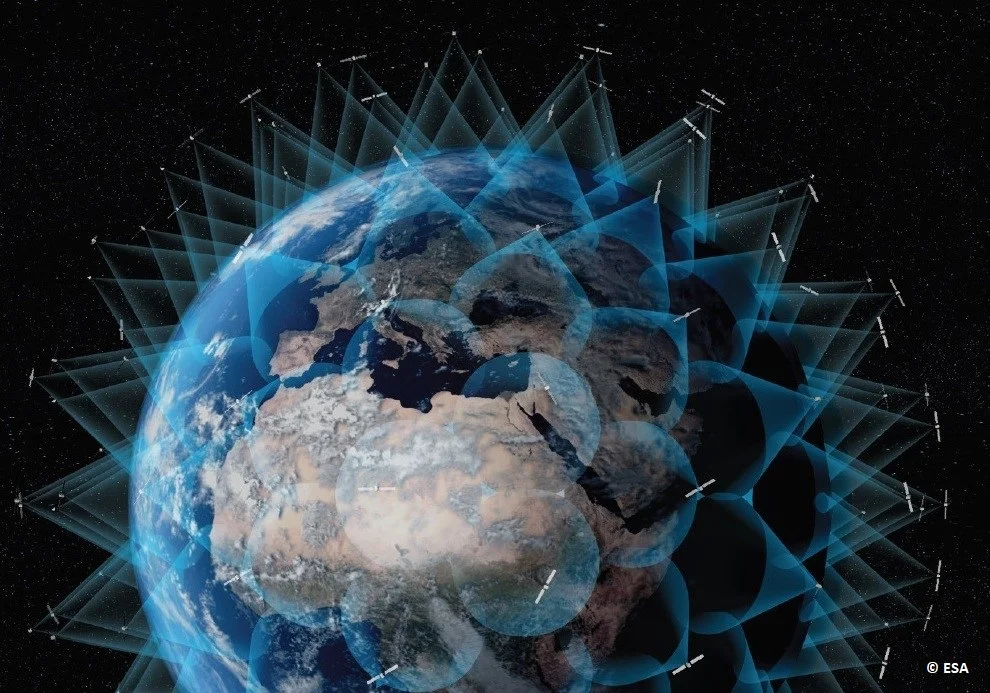LEO-PNT


Concept of satellite constellation devoted to complement GNSS satellites in low orbits

Low-Earth Orbit (LEO) satellites are expected to play a major role in future satellite-based positioning systems, providing alternative Positioning, Navigation and Timing (PNT) for complementing existing Global Navigation Satellite Systems (GNSS) such as GPS and Galileo.
LEO-PNT will bring many advantages such as a much higher number of visible satellites, a much stronger signal strength and higher satellite dynamics, the latter contributing to a wider and more diverse satellite geometry, thus potentially resulting in superior positioning performance. All these features can promote a wide-range of applications within a variety of fields, including mobility, logistics, smart cities and climate change monitoring, among others. Within the IEEC, there are key research groups working on LEO-PNT signal and receiver design, on the development of low-cost and low-power consumption positioning solutions, such as for Internet of Things (IoT) devices (SPCOMNAV at UAB-IEEC), as well as their potential usage for precise positioning and atmospheric sciences (UPC-IonSAT at UPC-IEEC).
In particular and since 2020, SPCOMNAV research group at the UAB unit has conducted several research and knowledge-transfer projects, mainly for the European Space Agency (ESA), to investigate and pave the way from the present MEO-based GNSS PNT to future LEO-PNT complementary approaches. In this context, SPCOMNAV has been responsible for analysing chirp spread spectrum signals for positioning with LEO satellites, enabling low-cost and low-energy solutions of special relevance for IoT devices. More recently, SPCOMNAV has been actively contributing to the design, development and testing of user-level baseband algorithms for the acquisition and tracking of the new LEO-PNT signals. Moreover, they are working on a testbed for the remote monitoring of GNSS and LEO satellites, making use of cloud computing for signal processing and quality assessment.
